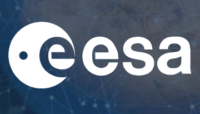Please help us! AquaWatch’s goal is to construct a global scale water quality information service (somewhat analogous to the weather service) based on satellite Earth Observations that will provide timely water quality monitoring information around the world. We would like to raise funds to gain Tax Deductible status in the US ( 501(c)(3)). This is necessary to apply for many of the Foundation grant opportunities in the US and will cost about $1800USD. Donate here today!
More background
Water quality is essential for human, ecosystem and economic health. Degradation of water quality can result in human exposure to disease and harmful chemicals, reduction in productivity and diversity of ecosystems and damage to aquaculture, agriculture and other water-related industries. This new, transformative approach to water quality monitoring will elucidate inland and coastal conditions in near-real time as recent advances in satellite remote sensing now provide the opportunity to monitor essential surface water quality conditions from space.
Our organization has been around since 2007 and is a broad community of satellite and remote sensing experts, water resource managers, industry and citizens. We have always operated with a fiscal sponsor, but now would like to elevate our organization by pursuing recognition as a charity in the United States, estimated to require about $1800USD for an attorney’s review of the forms and application filing fees. We are also open to pursuing this status in other global funding bodies, such as the European Commission, etc.





